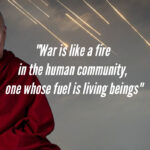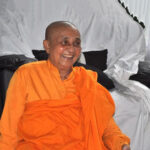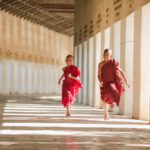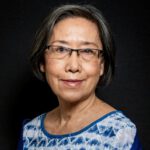Asian Civil Society Conference on Climate Change and Ecology
ICE: Inter-religious Climate & Ecology Conference II
Climate Change, Sustainability and Resilience
Climate and Poverty, Food Crisis, Energy Innovations, Disaster Risk Reduction, Bio-diversity Conservation, Good Governance, Reduction and Adaptation Cases, Capabilities Strengthening
April 24-30, 2015
Seoul, South Korea
Background
ICE, or the Inter-religious Climate & Ecology Network, came together as an interfaith initiative to address the complex and combined challenges of climate change, biodiversity loss and human insecurity. The first conference was held in 2012 in Sri Lanka. ICE emphasizes a combination of community-based actions for resilience and increasing advocacy to bring political, policy and awareness changes.
Our purpose is to draw on our diverse experiences of responding to impacts and managing vulnerabilities, our understanding of science and risks, and drawing on our value systems and cultures as a source of solidarity and inspiration. This purpose will be approached through joint education on the science of climate change, exchanges of belief and understanding of our role within our sacred eco-systems, and discussion and sharing of solutions to improve adaptation, to mitigate against climate risks, to improve biodiversity, and to overall increase resilience to climatic change.
ICE Network’s goals include an intention for the wise influence of national climate change-related public policy discourse within Asia, and to stimulate and strengthen diplomatic discussions around climate change at international level.
We aim to do this in cooperation with an inclusive variety of stakeholders representing a cross- section of faith-based and civil society organizations, climate scientists and social entrepreneurs. ICE strives for gender, age and identity-equitable participation. We seek to encourage healing in a world struggling for equality, justice and wellbeing, as resource/access inequality and complex vulnerability is intensified by climate change.
Conference Objectives
- Explore ways to implement actions and advocacy in response to climate change by Asian faith-based and civil society;
- Increase awareness, cooperation and create a common ground for joint response to climate change and environmental challenges between civil societies in Asia and in Korea.
- Build the capacity of Asian civil societies and faith-based organisations to respond to climate change and increase resilience; Strengthen & leverage those capacities through ICE Network.
|
Overview Schedule: |
Registration Fees |
||
|
Date |
Activities |
Low Income / South Country |
High Income/ North Country |
|
22-25 April |
Japan Nuclear and Sustainable Energy Tour (in Japan) |
80 US$ |
150 US$ |
|
24-25 April |
A to Z Climate Change Workshop (in South Korea) |
50 US$ |
80 US$ |
|
27-28 April |
Exposure Trip & Parade at Wolsong (near nuclear power plant-South Korea) |
50 US$ |
100 US$ |
|
29-30 April |
The 2nd ICE Conference(South Korea) Asian Civil Society Conference on Climate Change and Ecology Climate Change, Sustainability and Resilience |
30 US$ |
60 US$ |
|
1 May |
Fast for the Climate |
||
|
2 May |
ICE Core Group Meeting (by invitation) |
||
Registration fees: including accommodation and foods, local transportation, conference manual and local gifts. For Korean participants, accommodation will not be included during conference on 29th and 30th in Seoul.
Participants: 150 Korean, 70 foreign
· Activists working in the fields of community development and environment/ecology
· From 15-20 countries including Sri Lanka, Thailand, India, Myanmar, Vietnam, Indonesia, Philippines, Cambodia, Bhutan, Nepal, China, Taiwan, Japan, Malaysia, Laos, United States, South Africa, Australia and Korea
Organizers:
Korean Organizing Committee for Asian Civil Society Conference on Climate Change and Ecology
· Lotus World
· Buddhist Ecological Contents Institute
· Korea Brahma Kumaris Association
· Won-Buddhist Environment Solidarity
· Korean Buddhists’ Foundation for Social-Welfare & Volunteering
· Korean Catholic Solidarity for Creation Integrity
· Green Asia Network
· Peace Village Network
· Christian Environmental Movement Solidarity
· Citizen’s Movement for Environmental Justice
· INEB (International Network of Engaged Buddhists)
· ICE Network (Inter-Religious Climate & Ecology Network)
The ICE Network (Inter-religious Climate and Ecology Network)
is a pan-Asia, local-to-local, collaborative network of diverse spiritual communities seeking to share experiences, learning, and wisdom that will build resilience and empowerment in the face of climate change.
Our purpose is to wisely influence national public policy within Asia and to stimulate and strengthen diplomatic discussions around climate change at international level. We aim to do this in cooperation with various stakeholders, such as faith-based and civil society organizations, gender and age based groups, and business networks. We seek to encourage healing in a world struggling with equality and vulnerability, both intensified by climate change.
Detailed Schedule of the 2nd ICE Conference* subject to change
April 29-30, 2015
|
April 29: at Jogye Temple, Headquarters or the Jogye Buddhist Order, Seoul |
|
|
09.00-09.30 |
Opening & Welcome Messages
|
|
09.30-10.30 |
Keynote Speech 1: “Climate Change and Sustainability”with Q&A Speaker: *TBA |
|
10.30-11.45 |
Panel Discussion:Case Studies on The Impact of Climate Change o Desertification &Asian Dust (Eco-Asia University) o Particulate Materials(Citizen’s Movement for Environmental Justice) o Problematic Energy Responses to Global Warming(Japan Network of Engaged Buddhists) o Flood&Soil Erosion (Bangladesh Association for Sustainable Development) o The Great Pacific Garbage Patchconfirmed Moderator: Jonathan Watts(Japan Network of Engaged Buddhists) |
|
11.45-13.30 |
Lunch |
|
13.30-16.00 |
Parallel Workshops 1 rep from 3 orgs per workshop
|
|
16.00-17.00 |
Parade to Cheongye Plaza |
|
17.00-19.00 |
Cultural Performance & Exhibition (Cheongye Plaza) Welcome and Commitment Speech by the Mayor of Seoul City |
|
April 30: at Myeongdong Catholic Cathedral, Seoul |
|
|
09.30-10.30 |
Keynote Speech 2 “Climate Change and Action”with Q&A Speaker: Oh Ki-Chul, Secretary General Green Asia Network |
|
10.30-11.45 |
Panel Discussion: Cases Studies on Positive Responses o Organic Food (Brahma Kumaris) o Bio-gas- Alternative Energy (Kalayana Mitta Development Foundation) o Action Research (National Institute of Ecology) o Bicycle Yatra- Education Youth Mobilization (Eco Friendly Volunteers:ECO-V) o Grassroots to International Political Advocacy Moderator: Chun Kwon Hwan* |
|
11.45-13.30 |
Lunch |
|
13.30-16.00 |
Parallel Workshops
|
|
16.00-16.30 |
Closing Ceremony |
|
16.30-17.30 |
Press Conference & Statements by Participants |
* To Be Confirmed
Exposure Trip:Korea Energy and Environment Tour
April 27-28 (1 night/2 days)
Group 1
Seoul -> Wonju (Socio-Economic Network) -> Daegwanryeong (Wind Farm) ->
Wolsung (Nuclear Power Plant) -> Seoul
Group2
Seoul-> NamhangangRiver (affected by 4 Rivers Project) -> Youngju (stream conservation trust)-> Wolsung (Nuclear Power Plant) -> Seoul
Group 1 & 2
Parade, Wolsong (near nuclear power plant)
in the afternoon of the April 28th.
Pre Conference Workshop: A-Z Climate Change Workshop* subject to change
April 24-25at Woljeong-sa Temple
This one and a half day workshop will provide in-depth informative knowledge on these questions:
* What is happening to our planet?
* What will be the impact if the world continues on like this?
* Why is this happening?
* Who are the key players that got us into this crisis?
* Who are the key players to make it better? Can it work?
* What else needs to be done?
* What can we do?
This workshop is relevant to anyone who is interested to know about climate change issues and particularly for FBOs, NGOs, social and environmental activists, academics, mass media, and students.
Resource Person: Dr. Nigel Crawhall (South Africa)
Nigel Crawhall holds a PhD in Sociolinguistics from the University of Cape Town. He is currently the Director of Secretariat for the Indigenous Peoples of Africa Coordinating Committee (IPACC) based in Cape Town, South Africa. He is the International Union for the Conservation of Nature (IUCN) focal point on faith conservation and climate change. He is a co-Chair of the IUCN Theme on Indigenous Peoples, Local Communities, Equity and Protected Areas (TILCEPA). He is a member of two inter-religious regional networks for environmental and climate advocacy. In 2014 he served on the global interfaith liaison committee to the UN Framework Convention on Climate Change. He is on the Executive Committee of the International Network of Engaged Buddhists (INEB).
Exposure Tour: Japan Nuclear and Sustainable Energy Tour
April 22-25 in Fukushima and Tokyo, Japan
Societies of Sustainability and Sufficiency:
Learning from Fukushima & Building Green Temple Communities
Summary of Goals:
l Expose foreign Buddhists, other religious professionals, activists, and media to: a) the realities of life in Fukushima, b) the dislocations caused by nuclear energy in wide sectors of society, c) community support and activism by Japanese Buddhists and other religious professionals throughout Japan, d) renewable energy initiatives by Japanese Buddhist groups and other religious organizations.
l Share through experiential workshops the perspectives and skills of: a) South and Southeast Asian Buddhists in community development and b) Japanese Buddhists and other religious professionals in anti-nuclear activism and renewable energy.
l Create an international network for sharing best practices on building “green temples” and “green temple communities”
Program: April 21-25
April 21 (Tues):
Arrivals at Narita or Haneda International Airports
April 22 (Wed):
Orientation the Japanese Energy Issue and Exposure to Juko-in Solar Temple (Tokyo)
April 23-24 (Thu-Fri):
Fukushima Exposure: meeting nuclear power plant workers, internal refugees, Buddhist priests and community activists involved in child healthcare, food security, and community restoration
April 25 (Sat):
Networking meeting of Buddhists, other religious groups, social activists and other persons involved in the nuclear and renewable energy issue (Tokyo)
Participants: 8-13
All participants for the INEB ICE conference in Seoul are welcome to register for this study tour. However, we would like participants to join not from curiosity but from the basis of their own work in: 1) grassroots Buddhist or religious community development especially in sustainable energy, ideally with a temple/church/mosque base, or 2) anti-nuclear activism, ideally with religious identity and interest in sustainable energy activities; or 3) newspaper or media profession with an interest in reporting on and promoting these activities. General priority wil
l be given to participants from the global South (as similar events will be organized for East Asians and Westerners at another time).
About the Organizers:
The main organizer for this event will be the Japan Network of Engaged Buddhists (JNEB), which provides an informal network and umbrella for a wide range of Buddhist social activists to engage in social activities. The Interfaith Forum for the Review of National Nuclear Policy and The AYUS International Buddhist Cooperation Network and its Buddhist NGO Network will also be providing support to the organization of the project. Within Fukushima, these 3 organizations above work with a wide range of civic and religious groups who will support this project, such as Team Nihonmatsu, Dokei-ji Temple, and the JIPPO Rape Seed Project. The project will collaborate with Juko-in Temple, the Edogawa Citizen’s Network for Thinking about Global Warming (ECNG), and the Religious and Scholarly Eco Initiative (RSE).
Fast for the Climate
May 1, Seoul, South Korea
When Typhoon Haiyan had just devastated the Philippines in November last year, climate commissioner Yeb Saño was at the UN climate talks in Warsaw. His own family was caught up in the disaster that killed thousands and destroyed homes and livelihoods across the country.
In a moving speech he said he would not eat until countries at the Warsaw conference delivered actions that would ‘stop the madness’ of the climate crisis.Hundreds of others from around the world chose to fast with him in solidarity.Despite this, the Warsaw meeting saw countries, like Japan, actually winding back their climate commitments, seemingly in denial that all countries will need to commit and contribute to the comprehensive, global climate action plan which is due in Paris in 2015.
The Fast For The Climate has grown into global movement with participation of youth groups, environmental groups and faith-based groups, who all want urgent action on climate change by governments this year.
INEB and ICE Network is a part of this initiative
Registration and Contact Information:
For the Main Conference and Events in Korea:
For International Participants, please contact:
Ms. Narumon Paiboonsittikun (Mon)
E-mail: coordinator@13.229.239.55
International Network of Engaged Buddhists (INEB), Bangkok, Siam(Thailand)
www.inebnetwork.org
For Korean Participants, please contact:
Ms. Junghee Min
E-mail: mitra@lotusworld.or.kr, or mujin21@gmail.com
Tel: 82-(0)2-725-4277, or 82-(0)10-5612-7504, Fax:82-(0)2-725-4287
Address: Lotus World, Rm 707 Doosan We’ve Pavilion,Sambongno 81, Jongno-gu, Seoul, South Korea
For the Japan Energy Tour Only:
Mr. Jonathan Watts
Japan Network of Engaged Buddhists
E-mail: ogigaya@gmail.com
URL: http://jneb.jp/english/activities/buddhismnukes/international-project-energy/energytourapril2015
Payments for all events—except Japan Energy Tour—may be made in the following manner
1) Paypal or Credit Card via the Lotus World Homepage
2) On arrival at conference registration
3) Bank Transfer
Bank Name: Industrial Bank of Korea
Branch: Dong Suwon
Account No.: 287-202985-56-00014
Account Name: Lotus World
Swift Code: IBKOKRSEXXX
Address of Bank: Kwon Kwangno 213, Paldal-gu, Suwon city, Kyunggido, South Korea
For the Japan Energy Tour, payments can be made in cash on arrival in Japan





